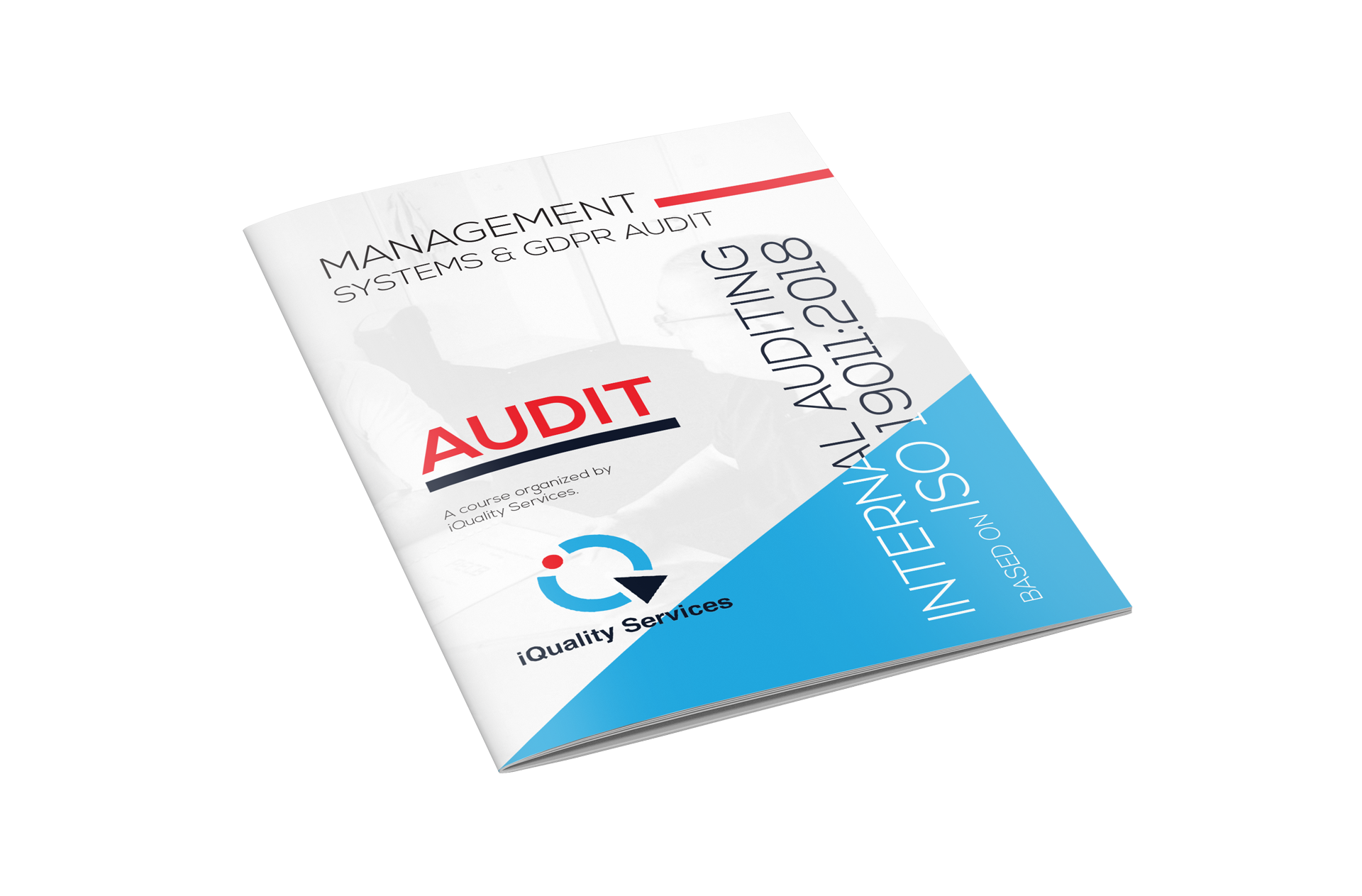
This training program covers the latest ISO 19011:2018 guidelines and corresponding techniques for conducting management system audits for any of these ISO standards, but not limited to ISO 9001, ISO/IEC 27001, ISO 37001, ISO 28000, ISO 22000, ISO 14001 and ISO 45001. The course it’s structured so someone with no internal audit experience can quickly understand how the audit process works and what steps are needed for an audit’s successful completion.
ISO 19011:2018 – Guidelines for auditing management systems “provides guidance on auditing management systems, including the principles of auditing, managing an audit programme and conducting management system audits, as well as guidance on the evaluation of competence of individuals involved in the audit process. These activities include the individual(s) managing the audit programme, auditors and audit teams“. (www.iso.org)
Internal auditors and responsible for conducting internal audits;
Anyone who will audit their organisation’s management system;
Managers or consultants seeking to master a management system audit process;
Expert advisors in management systems.
Understand the auditor’s role to plan, lead and follow-up on a management system audit in accordance with ISO 19011;
Learn how to organizing and conduct an audit based on ISO 19011 guidelines;
Learn the audit investigation techniques;
Learn how to conduct audit interviews;
Learn how to writing the internal audit reports;
Learn how to effectively communicate and report audit results.
A virtual classroom is a learning environment in which trainees engage with the lesson material online and trainers interact with trainees in real-time. Trainees can voice their questions and interact with peers similar to how they would in a regular classroom, albeit over the internet.
Our virtual classrooms include:
- Video conferencing: using the best web conferencing software to facilitate trainee-trainer-trainee communication.
- Interactive online whiteboard: so users can interact on the same online page.
- Instant messaging: allowing typed conversations on lower bandwidths.
- Participation controls: enabling trainees to participate in discussions, mute their surroundings, or virtually “raise” their hands.
- Sub-chats: breakout rooms to facilitate collaboration between trainees.
- Video recording: to save live lectures as video-on-demand for later reference.
- End-to-end encryption: to ensure virtual classroom access is restricted to authorized trainees.
- Library of learning materials: essential for providing more structured lessons.
- Online assessment with specialized software.
AGENDA: 2 DAYS (12 hours)
Day 1 (6 hours):
- Overview of the internal audit;
- Internal auditor – skills, competencies, qualifications and responsibilities;
- Introduction to auditing management systems and ISO 19011:2018;
- Documentation requirements.
Day 2 (6 hours):
- Internal audit preparation;
- The main activities to be performed to conduct an internal audit;
- Audit investigation techniques;
- How to develop the internal audit checklist;
- Writing the internal audit reports;
- Communicating the audit results, including nonconformities.
We recommend like prior to attending the course, participants obtain their own official copy of the ISO standards via the national standards body or by visiting www.iso.org.
Pay the course fee.
Attend 100% of the virtual classroom sessions.
Successfully complete the virtual classroom sessions for applying ISO 19011 audit scenarios (trainer will evaluate performance).
We will evaluate you as you go and no assessment after the completion of the course.
Participants will learn through role-plays, case studies, group exercises, scenarios, and discussions.
The training kit containing over 300 pages of information and practical examples will be distributed.
Detailed instructions for accessing the training kit and exam will be sent by email.
Certification of Attendance will be provided upon completion. (The certificate that results from this program is an attestation that the participants have acquired the knowledge and skills listed in the learning objectives as demonstrated during the course and may be used by the participant’s employer and/or auditor certification bodies as the training element needed to ascertain auditor competence.)
A participation Certificates of Attendance will be issued in English language or in another language desired by the participants.
Click here to see sample of the Certificates of Attendance.
Inquire today